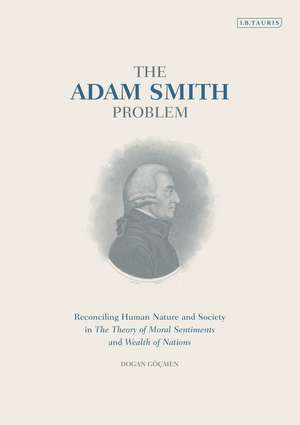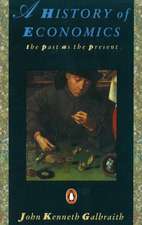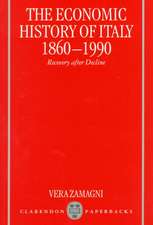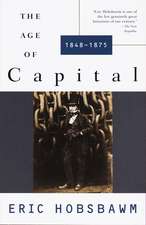The Adam Smith Problem: Reconciling Human Nature and Society in ‘The Theory of Moral Sentiments’ and ‘Wealth of Nations’
Autor Dogan Göçmenen Limba Engleză Hardback – 26 iun 2007
Preț: 771.17 lei
Preț vechi: 1111.39 lei
-31% Nou
Puncte Express: 1157
Preț estimativ în valută:
147.61€ • 160.39$ • 124.07£
147.61€ • 160.39$ • 124.07£
Carte tipărită la comandă
Livrare economică 22 aprilie-06 mai
Preluare comenzi: 021 569.72.76
Specificații
ISBN-13: 9781845114008
ISBN-10: 1845114000
Pagini: 200
Dimensiuni: 138 x 216 x 22 mm
Greutate: 0.38 kg
Editura: Bloomsbury Publishing
Colecția I.B.Tauris
Locul publicării:London, United Kingdom
ISBN-10: 1845114000
Pagini: 200
Dimensiuni: 138 x 216 x 22 mm
Greutate: 0.38 kg
Editura: Bloomsbury Publishing
Colecția I.B.Tauris
Locul publicării:London, United Kingdom
Notă biografică
Do an Gocmen completed his PhD at the University of Edinburgh.
Cuprins
CONTENTS Part I: Introduction 1. The Adam Smith Problem: what is it about? 2.The approaches to the Adam Smith Problem 2.1 The textual-analytical approach 2.1aThe French connection theory 2.1b The dualist justificatory approach 2.1c The defensive approach 2.2 The historical approach 2.3 How the Adam Smith Problem may be approached 3. An outline of the book Part II: Smith's theory of social individuality in the Theory of Moral Sentiments 1.What is crucial to the theory of the constitution of the self? 1. 1Smith's objectivist and critical theoretical approach 1. 2 Where to begin? 1. 3 Smith's starting-point in his theory of the constitution of the self 2. Impartiality as the basis of mutual constitution 3. 1How do we cognise and understand others and what do we understand from others? 3.1a Cognitive and epistemological difficulties 3.1bHow imagination can help to overcome the epistemological difficulties 3. 1c The situation as the objective foundation of understanding 3.2 How do we cognise and understand ourselves by means of the mirrors of others? 3.3 Smith's theory of mutual judgement A. The difference between the process of mutual cognition and understanding and the process of mutual judgement B. Smith's theory of action B.1 Necessity and freedom in Smith theory of action B.2 Smith's theory of action as communicative B.3 The conception of utility and Smith's theory of action C. How do we judge? C.1 Occasions of judgement C.2 The general rule as the basis of the judgment of the impartial spectator C.3 Against casuistry and positive law C.4 The genesis of general rules C.5 The impartial spectator as a device for the therapy of passions and thought C.6 The genesis of the impartial spectator within C.7 The impartial spectator as the genesis of difference C.8 The difference between the judgment of other selves and ourselves C.9 Why do we necessarily appeal to the impartial spectator within? C.10 Impartial judgment aims at mutual sympathy Part III: Smith's account of the situation of the self in the age of commercial society in the Wealth of Nations 1. How to approach Wealth of Nations 2. Smith's account of the situation of the self in commercial society 2. 1 Smith's account of the situation of the self in market relations 2. 2 Smith's account of the situation of the self in the sphere of production 2. 2.1 Smith's account of the division of labour as affecting the situation of the self 2. 2.2 Smith's account of the situation of the self as affected by social class structure 3. Some comparative conclusions 4. Smith's historical justification of commercial society Part IV: Smith's critique of commercial society and his utopia 1. Smith's critique of commercial society 1. 1 Smith's critical Common-Sense realism as the epistemological basis of his critique of commercial society 1. 2 Smith's critique of the division of labour 1. 3 Smith's critique of the social class structure of commercial society 1. 4 Trust and free communication as the sign of an open society 1. 5 Smith's critique of the structure of recognition in commercial society 2.Smith's utopia: society as an open and progressive system of mutual sympathy 2. 1 Smith against Hume's and Mandeville's moral scepticism 2. 2 Smith's conditional justification of the possibility of utopia Part V: Conclusions Bibliography














